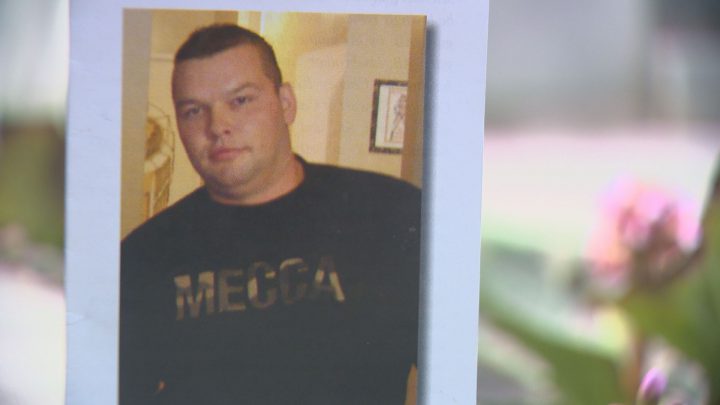A public inquest into the death of a man who was found unresponsive in a Saskatoon Police Service detention cell continued on Tuesday, starting with testimony from three police constables.

They told the court Michael Ryan appeared to be high on crystal meth when he was taken into custody, was coherent and at no time in their care seemed to be in medical distress.
All three were the first responding officers dispatched to 22nd Street and Avenue P on Feb. 26, 2016 where witnesses reported Ryan was walking in and out of traffic and could be seen yelling on a phone.
Excessive sweating, dilated pupils and Ryan’s paranoia, testified the constables, led them to conclude he was high on meth.
He passively resisted being arrested; those attending said they didn’t kick or strike him to get him to comply, but he was forcibly put in the back of the cruiser.
Ryan was asked several times what he had consumed and admitted to using cannabis. A call to paramedics was considered on scene, but the 38-year-old man declined the offer.
Ryan, who had two warrants out for his arrest and a court condition not to use drugs, was then booked by police into detention.
Cst. Sheldon Reddekopp, who was a licensed paramedic for years, said there was nothing that signalled to him or others that Ryan was in need of medical attention or that hours later he would die after being found unresponsive in his cell.

Get daily National news
On Monday, court heard a baggie was discovered in Ryan’s mouth when police entered the cell to perform life-saving measures – it tested positive for cocaine and meth. His autopsy concluded he had died of an overdose.
The details described in court have been hard for the family to hear but say the inquest is providing some closure.
“After the long process of the two and half years almost – it’s nice to have our concerns addressed,” Ryan’s brother Cheney Ryan said.
In 2016, changes were made by Saskatoon police to ensure paramedics were present on the detention unit 24-7.
Cheney Ryan, who fought back tears, said it was a step in the right direction in dealing with the country’s opioid crisis.
“He’s not the first. He’s not the last, but at least there’s more awareness in detention centres.”
In addition to those changes, Reddekopp testified that the force within the last year has armed its officers on patrol with naloxone, a drug that is safe and when administered reverses the effects of a drug overdose.








Comments
Comments closed.
Due to the sensitive and/or legal subject matter of some of the content on globalnews.ca, we reserve the ability to disable comments from time to time.
Please see our Commenting Policy for more.